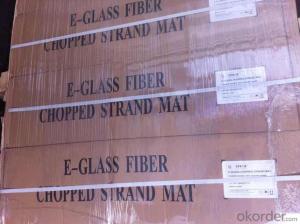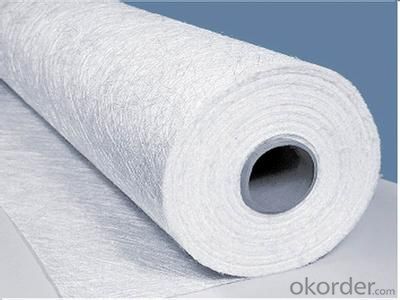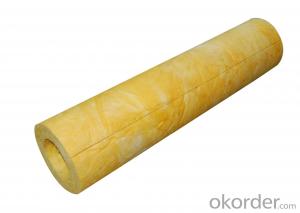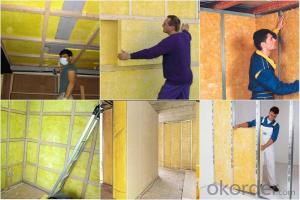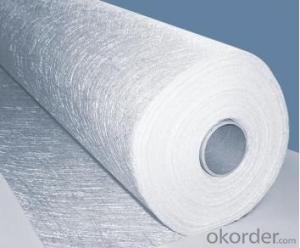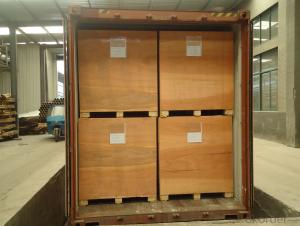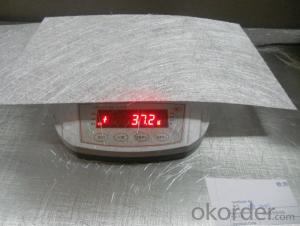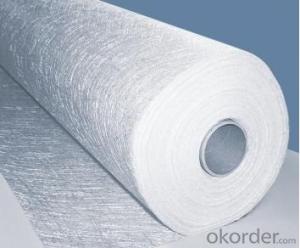Fiberglass Mat Tissue e-glass Chopped Strand Mat 600gsm
- Loading Port:
- China Main Port
- Payment Terms:
- TT or LC
- Min Order Qty:
- 20000 kg
- Supply Capability:
- -
OKorder Service Pledge
OKorder Financial Service
You Might Also Like
1.Product Description
E-glass CSM 600gsm is made of randomly dispersed strands with power or emulsion bonded.
Applicable for hand lay-up ,continuous lamination process. Compatible with UP,VE.
Suitable for transparent panels,ship bodies,automobile parts and interior decorations ,etc.
Consistent thickness and stiffness.
Rapid impregnating and good compatibility with resin.
Superior wet through with less air trap.
Good mechanical properties and high strength of parts.
3.Technical Data Sheet
| Various Tests | ACCEPTED STANDARDS | TEST RESULTS | ||
| Conducted | Standard No. | Standard Value | Average Value | Passed ? / Yes or No |
| Mass per Unit Area | ISO 3374 — 2000 | 555-645 | 608 | Yes |
| (g/m2) | ||||
| Breakage Strengh | ISO 3342— 1995 | ≥160 | 328.00 | Yes |
| (N) | ||||
| Moisture Content | ISO 3344 — 1997 | ≤0.20 | 0.10 | Yes |
| (%) | ||||
| Loss on Ignition | ISO 1887 — 1995 | 2.42-4.59 | 3.13 | Yes |
| (%) | ||||
Packaging&Storage
Eech roll is packed by polyester bag,and then put into a cardboard box or plastic wowen bag.The weight of each roll is between 20 to 85 Kg, The rolls are to be horizontally placed and could be in bulk or on pallet.Optimum storage conditions are between the temperature of 5~35℃ and with the humidity between 35%~65%.The product should be used within 12 months from the time of delivery and remain in theiroriginal packaging until just prior to use.
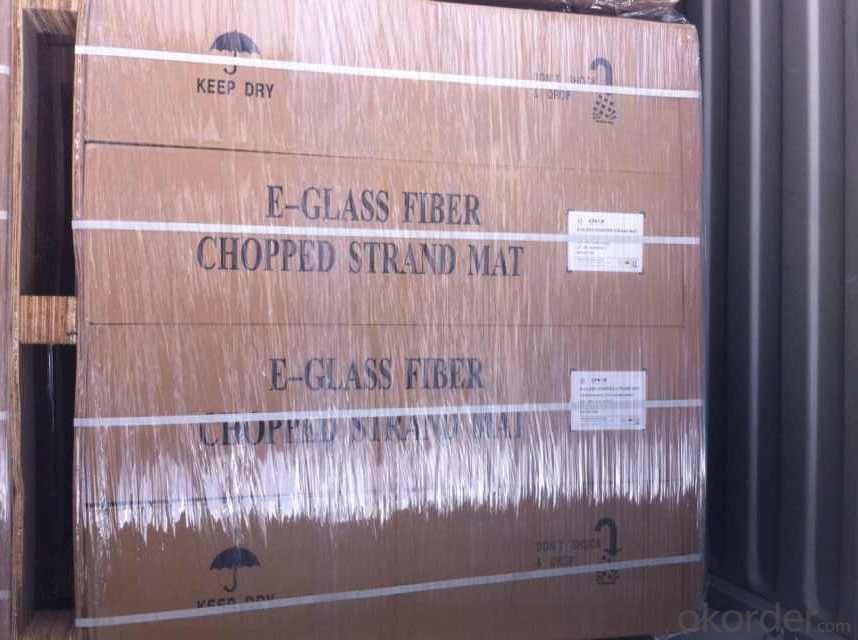
- Q: What is the dimensional stability of fiberglass mat tissue?
- The ability of fiberglass mat tissue to maintain its size and shape under different conditions is referred to as its dimensional stability. Fiberglass mat tissue is well-known for its outstanding dimensional stability, which makes it highly resistant to shrinking, expanding, or warping. This stability is achieved through the manufacturing process, where glass fibers are bonded together using a binder material. Not only does this binder ensure the integrity of the mat tissue, but it also helps it maintain its dimensional stability over time. Moreover, the exceptional dimensional stability of fiberglass mat tissue is further enhanced by its inherent properties, such as its high strength and stiffness. These characteristics have made fiberglass mat tissue a popular choice in various industries, including construction, automotive, and aerospace, where maintaining consistent dimensions is essential for optimal performance and durability.
- Q: How is fiberglass mat tissue used in the production of printed circuit boards?
- Fiberglass mat tissue is used as a reinforcement material in the production of printed circuit boards (PCBs). It is typically impregnated with epoxy resin and then laminated onto the copper-clad laminates. This helps to improve the mechanical strength and stability of the PCB, making it more resistant to bending, warping, and other forms of physical stress. Additionally, the fiberglass mat tissue provides insulation between the copper layers, preventing short circuits and enhancing the overall performance and reliability of the PCBs.
- Q: Can fiberglass mat tissue be used for repairing fiberglass boats?
- Yes, fiberglass mat tissue can be used for repairing fiberglass boats. It is commonly used in boat repairs to reinforce weak or damaged areas and provide strength and durability to the repaired sections.
- Q: What is fiberglass mat tissue made of?
- Fiberglass mat tissue is made of fine strands of glass fibers that are woven together to form a thin, flexible fabric-like material. These glass fibers are typically made from molten glass that is drawn into very thin filaments and then coated with a binding agent to improve strength and durability. The woven structure of the fiberglass mat tissue helps to provide reinforcement and stability to various materials and products, making it an ideal choice for applications such as insulation, roofing, and composite materials.
- Q: Can fiberglass mat tissue be used for composite tooling?
- Yes, fiberglass mat tissue can be used for composite tooling. Fiberglass mat tissue is a lightweight material made of randomly oriented fiberglass strands bonded together with a resin binder. It is commonly used as a reinforcement material in composite applications such as boat building, automotive parts, and aerospace structures. When used for composite tooling, fiberglass mat tissue can provide strength and stiffness to the tooling structure. It can be layered and impregnated with resin to form a solid and durable composite tool. The resin binder in the mat tissue helps to hold the fibers together and provide resistance against wear and tear. Fiberglass mat tissue is also flexible and can be easily molded into complex shapes, making it suitable for creating tooling with intricate designs. It can be easily cut and shaped to match the desired tooling dimensions. However, it is important to note that fiberglass mat tissue alone may not be sufficient for all types of tooling applications. Depending on the specific requirements of the tool, additional reinforcement materials such as carbon fiber or Kevlar may need to be added to enhance the strength and durability. Overall, fiberglass mat tissue can be a cost-effective and practical choice for composite tooling, providing strength, flexibility, and ease of use.
- Q: What are the different finishing options available for fiberglass mat tissue?
- There are several different finishing options available for fiberglass mat tissue. One common finishing option is a resin coating. This involves applying a layer of resin to the surface of the fiberglass mat tissue. The resin helps to protect the fibers and provide added strength and durability. It can also improve the appearance of the material, giving it a smooth and glossy finish. Another finishing option is a fire-retardant treatment. This involves applying a special chemical treatment to the fiberglass mat tissue that helps to reduce its flammability. This is especially important in applications where fire safety is a concern, such as in the construction industry. Additionally, fiberglass mat tissue can be finished with a colored pigment. This involves adding a dye or pigment to the material during the manufacturing process. This allows for a wide range of color options, making the fiberglass mat tissue more visually appealing and versatile. Some manufacturers also offer a textured finish for fiberglass mat tissue. This involves adding a pattern or texture to the surface of the material, creating a more tactile and aesthetically pleasing product. This can be particularly useful in applications where grip or slip resistance is required. Lastly, fiberglass mat tissue can be finished with a laminated backing. This involves bonding the fiberglass mat tissue to a separate backing material, such as foam or fabric. This provides additional strength and flexibility to the material, making it suitable for a wider range of applications. Overall, the different finishing options available for fiberglass mat tissue allow for customization and adaptation to specific needs and requirements. Whether it's adding strength, fire resistance, color, texture, or additional backing, these finishing options enhance the performance and appearance of fiberglass mat tissue in various industries.
- Q: How does the surface finish of fiberglass mat tissue affect its adhesion to resin?
- The adhesion of resin to fiberglass mat tissue can be significantly influenced by its surface finish. The surface finish pertains to the texture or smoothness of the fiberglass mat tissue. In general, a rough surface finish tends to promote better adhesion to resin. This is because a rough surface provides a larger area for the resin to adhere to, resulting in a stronger bond. Rough surface finishes can be achieved through different manufacturing techniques, such as using coarser fibers or incorporating texturizing agents during production. On the contrary, a smoother surface finish may lead to weaker adhesion. A smooth surface does not offer as much area for the resin to bond with, resulting in a weaker and less durable bond. Smoother surface finishes can be attained by using finer fibers or through additional processing steps to smoothen the surface. When selecting the surface finish of fiberglass mat tissue, it is crucial to consider the specific application and requirements. For applications that necessitate high strength and durability, a rougher surface finish may be preferable to ensure optimal adhesion to the resin. Conversely, for applications where a weaker bond is acceptable or where a smoother surface finish is desired for aesthetic reasons, a smoother surface finish may be chosen. Ultimately, the surface finish of fiberglass mat tissue plays a vital role in determining the adhesion to resin. It is essential to choose the appropriate surface finish to achieve the desired strength, durability, and performance in various applications.
- Q: Can fiberglass mat tissue be used for repairing automotive parts?
- Yes, fiberglass mat tissue can be used for repairing automotive parts. Fiberglass mat tissue is a versatile material that is commonly used for reinforcing and repairing various surfaces, including automotive parts. It is particularly useful for repairing parts that are made of fiberglass, such as car bodies and panels. Fiberglass mat tissue is a thin and flexible material that is made up of randomly oriented fiberglass strands. It is designed to be easily molded and shaped to fit the contours of the damaged automotive part. The mat tissue is typically applied with a resin, such as polyester or epoxy, which binds the fibers together and creates a strong and durable repair. When used for automotive repairs, fiberglass mat tissue provides several benefits. Firstly, it is lightweight, which is important for maintaining the overall weight and balance of the vehicle. Additionally, it is resistant to corrosion and can withstand exposure to various weather conditions, making it suitable for all types of automotive repairs. Moreover, fiberglass mat tissue is known for its high tensile strength, which means that it can withstand the stresses and strains that automotive parts may experience during normal use. This makes it an ideal choice for repairing damaged or weakened areas, such as cracks, holes, or dents in car bodies or panels. In conclusion, fiberglass mat tissue can be effectively used for repairing automotive parts, especially those made of fiberglass. Its versatility, lightweight nature, resistance to corrosion, and high tensile strength make it an excellent choice for restoring the structural integrity and appearance of damaged automotive parts.
- Q: Can fiberglass mat tissue be used for reinforcing concrete?
- Yes, fiberglass mat tissue can be used for reinforcing concrete. Fiberglass mat tissue is a lightweight and flexible material that is often used in construction projects to enhance the strength and durability of concrete structures. It can be embedded within the concrete to provide additional reinforcement and prevent cracks from forming over time. The fiberglass mat tissue is typically made from high-quality glass fibers that are woven together to form a strong and stable material. Its excellent tensile strength and resistance to corrosion make it an ideal choice for reinforcing concrete and improving its overall performance. Whether it is used in sidewalks, driveways, or other concrete structures, fiberglass mat tissue can significantly enhance the strength and longevity of the concrete.
- Q: What are the key properties of fiberglass mat tissue?
- The key properties of fiberglass mat tissue include high strength and durability, excellent fire resistance, good thermal insulation properties, and resistance to chemicals and moisture. Additionally, it is lightweight, easy to handle and install, and offers good dimensional stability.
Send your message to us
Fiberglass Mat Tissue e-glass Chopped Strand Mat 600gsm
- Loading Port:
- China Main Port
- Payment Terms:
- TT or LC
- Min Order Qty:
- 20000 kg
- Supply Capability:
- -
OKorder Service Pledge
OKorder Financial Service
Similar products
Hot products
Hot Searches
Related keywords

